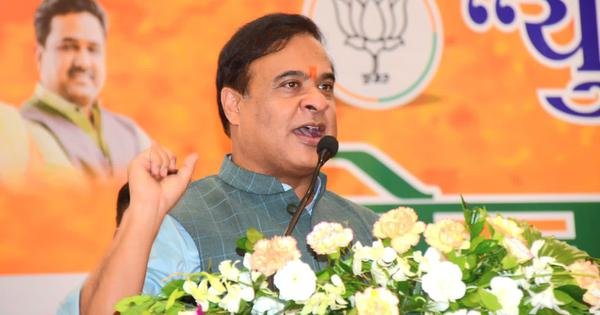Assam CM Criticizes Indira Gandhi’s Handling of 1971 War

Assam CM’s Statement on Indira Gandhi
Assam Chief Minister Himanta Biswa Sarma recently criticized former Prime Minister Indira Gandhi. He claimed she mishandled the situation after India’s victory in the 1971 war against Pakistan. This war led to the formation of Bangladesh.
“Had Mrs. Indira Gandhi been alive today, the nation would have questioned her for mishandling the decisive victory won by our armed forces,” he said in a post on X. “The creation of Bangladesh was not a bargain – it was a historic opportunity lost.”
Background of the Statement
Sarma made this statement after several Congress leaders praised Gandhi’s stance during the 1971 war. This was in the context of the current tensions between India and Pakistan. Both countries recently agreed to end four days of military tensions.
Criticism of Strategic Foresight
Sarma alleged that “India’s military triumph in 1971 was not matched by strategic foresight”. He claimed that the possibility of creating “a new regional order was reduced to a one-sided act of generosity”.
Long-Standing Issues in India-Bangladesh Relations
His post on X pointed to long-standing issues in India-Bangladesh relations over the past five decades. Sarma noted that while India had backed a secular Bangladesh during its liberation, Islam was declared the country’s state religion in 1988.
Criticism of Land Corridor
The Bharatiya Janata Party leader also criticized the absence of a land corridor through northern Bangladesh. This corridor would connect India’s northeast with the rest of the country. Currently, the narrow Siliguri Corridor, or “Chicken’s Neck”, is strategically exposed.
The Myth of Bangladesh’s Creation: A Strategic Triumph, A Diplomatic Folly
India’s 1971 military victory was decisive and historic. It broke Pakistan in two and gave birth to Bangladesh. But while our soldiers delivered a stunning battlefield success, India’s political…
— Himanta Biswa Sarma (@himantabiswa) May 11, 2025
The 1971 India-Pakistan War
The 1971 India-Pakistan War, also known as the Bangladesh Liberation War, was sparked by a rebellion in the erstwhile East Pakistan. This rebellion was against the government in Islamabad.
Background of the War
Since March of that year, Bengali nationalists had been fighting a brutal crackdown by Pakistani forces. These forces were suppressing the civil and political rights of the Bengali population.
India’s Involvement
Then Indian Prime Minister Indira Gandhi had provided support to the Bangladesh cause for months. The Indian military formally engaged in a full-scale war with Pakistan on December 3, 1971.
Surrender of Pakistani Forces
On December 16, 1971, the chief of the Pakistani forces, General Amir Abdullah Khan Niazi, along with his troops, surrendered to the allied forces. These forces consisted of the Indian Army and the Mukti Bahini in Dhaka. The day is observed in Bangladesh as ‘Bijoy Dibosh’ and marks the country’s formal independence from Pakistan.
Recent Tensions and Congress Leaders’ References
Since May 10, when India and Pakistan decided to put an end to four days of military tensions, Congress leaders have been referencing Indira Gandhi. They highlight her stance during the 1971 war to contrast with the US last week mediating an agreement between India and Pakistan.
US Secretary of State’s Statement
US Secretary of State Marco Rubio claimed on social media that New Delhi and Islamabad had agreed to “start talks on a broad set of issues at a neutral site”.
Congress’ Response
Following this, the Congress’ official X handle posted a photo of the former prime minister. The caption read: “Indira Gandhi – COURAGE | CONVICTION | STRENGTH”.
Indira Gandhi
COURAGE | CONVICTION | STRENGTH pic.twitter.com/tNkNKVjVv6
— Congress (@INCIndia) May 10, 2025
Jairam Ramesh’s Tweet
Congress leader Jairam Ramesh shared Indira Gandhi’s 1971 letter to US President Richard Nixon. He claimed that four days after this letter, Pakistan surrendered.
“She ensured that there was no neutral site which has now been agreed to,” Ramesh added.



